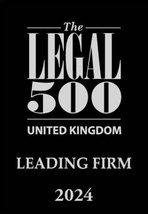Murray Beith Murray LLP is a leading Scottish private client law firm.
For 175 years we have specialised in meeting the legal, financial and administrative needs of individuals and families, family trusts, charities and private companies.
Murray Beith Murray LLP is a leading Scottish private client law firm.
For 175 years we have specialised in meeting the legal, financial and administrative needs of individuals and families, family trusts, charities and private companies.
 “Death is not the end. There remains the litigation over the estate.” Over a century later, Ambrose Bierce’s words still ring true today if you have not taken steps during lifetime to plan for what happens to your estate on death. Without proper estate and tax planning, your loved ones may find themselves embroiled in lengthy and costly litigation, both in monetary terms and family relationships. It is, therefore, essential that you take professional advice to ensure the preservation of your assets, family harmony, and the ability to exert control over the ultimate destination of your estate.
“Death is not the end. There remains the litigation over the estate.” Over a century later, Ambrose Bierce’s words still ring true today if you have not taken steps during lifetime to plan for what happens to your estate on death. Without proper estate and tax planning, your loved ones may find themselves embroiled in lengthy and costly litigation, both in monetary terms and family relationships. It is, therefore, essential that you take professional advice to ensure the preservation of your assets, family harmony, and the ability to exert control over the ultimate destination of your estate.
Estate planning is the method employed by individuals who wish to understand and determine what will happen to their estate on death, as well as whether they need to take steps to mitigate exposure to taxation where possible.
Often the first step in any estate planning exercise will be to calculate your net estate. This is done by calculating the sum of your assets and then deducting any debts and liabilities. Depending on the value of your estate, and the type of assets comprised within it, you will then be presented with several choices, often designed to help mitigate the impact of Inheritance Tax (IHT) and, on occasion, eliminate it entirely.
If you have not done so already, it is vital that you put in place a Will and ensure that its terms are consistent with your estate planning objectives. Without a Will, your estate on death would be dealt with under the laws of intestacy which could undermine or completely undo any plans set up during your lifetime.
One aspect of estate planning might involve divesting yourself of assets now rather than retaining them until your death. Consideration would need to be given as to the affordability of this as an option, whether any changes are needed to your Will as a consequence, and appropriate advice must be sought on the tax implications.
Estate planning tends not to be a “one-off” exercise and it is important that you keep your plan and your asset position under continuous review. By doing so, you will be able to take a proactive approach to protect your assets and mitigate the impact of tax.
One key aspect of estate and tax planning is understanding the tax regime. You should understand how it affects your estate and what steps you can take to make sure your estate is tax efficient.
Before embarking on what you can, might or should do, it is important to consider if you have a potential IHT problem. You will, generally, pay 40% IHT on the value of your estate in excess of your available nil rate bands, unless any reliefs or exemptions apply. If you know or suspect that your estate will be liable to a significant charge to IHT on your death, then steps can be taken now with a view to mitigating that exposure.
There are many steps you can consider to mitigate your exposure to IHT, such as:
These are just some of the options available to you. Only a detailed discussion about your current and future circumstances will enable you to make decisions on the actions you should take now. Seize control of your estate planning and do not leave it too late. On that note, I will leave you with a final quote, “By failing to prepare, you are preparing to fail” – Benjamin Franklin.
Adam Swayne is a Senior Solicitor within our Asset Protection Group and specialises in Estate planning and Wills. If this article has raised any questions or you are looking for clear, practical advice, please contact us to arrange an appointment or call on 0131 225 1200.
Murray Beith Murray was established in 1849 as advisors for generations of clients, committed to our values of integrity, expertise and trust. This aim and these values continue to this day, as does our commitment to be here when you need us.
